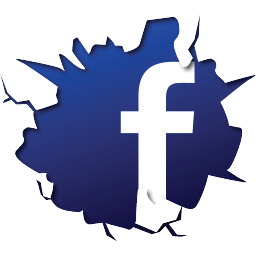Facebook branding requires a little common sense
Employers are sneaky. You present them with professional cover letters, resumes and references to show off your skills; they resort to surfing Facebook and other social media to get a more robust picture of your character.
And there are likely other tools they will use to research job candidates, giving them information you might not intend to be seen.
Not only have social media changed the way we communicate, but they have changed the way we look for jobs and how employers research prospective employees. According to Jobvite, eight of 10 human resources professionals will use social media in their recruitment within the next year.
What does that mean for you? It means you need to think of yourself as a brand, a personal brand. Your personal brand is a combination of your talents, accomplishments, experience and ideas unique to you. Not limited to your resume and cover letter, your personal brand extends to your online activities. Your presence on Facebook, Twitter, LinkedIn or any other website can leave an impression on recruiters. You’d like that impression to be positive.
Picture this: you had a great time partying and want to show how much fun you had by changing your Facebook photo to one of you consuming alcohol with your friends. Two months later, you apply for your dream job. When you don’t get the job, you contact the company to ask why not, only to be told your Facebook profile photo of you consuming alcohol played a major role in their decision.
Despite what privacy settings you might have in place, you can’t control how Facebook, for instance, changes them. A good general rule is to post only information you would be comfortable with the world seeing. Ask yourself if the fleeting thrill you’ll get from sharing the kegger photos is worth jeopardizing your career or future opportunities. A reputation that takes years to develop can be destroyed by a single event, and the viralness of social media has allowed for the smallest and most personal comments to shatter reputations and careers.
Social media are amazing tools that have brought the world closer and connected us in ways we couldn’t have imagined 10 years ago. But they have also given people a false sense of anonymity. In the United States, a private high school teacher made negative comments about parents and students on her Facebook page, assuming they were limited to her friends and family. But some of her privacy settings were not set correctly and the comments were seen by a parent; she was forced to resign from her $92,000-a-year career.
Once photos, videos or comments are on posted online, it’s difficult, if not impossible, to completely remove them. Tools such as Wayback Machine and Google Caching keep copies of content long after it has changed or been removed.
Even if you’re successful in removing the content you’ve posted, it might have already been downloaded thousands of times; you just don’t know.
Motrin produced a commercial targeted at mothers regarding the pain of carrying a baby, and stressed that Motrin understood their pain. There was a firestorm of complaints on social media from moms offended by the commercial because they thought the video trivialized women’s pain and their trendy baby-carrying practice. In less than a week, the video was pulled from their website and an apology issued. Unfortunately for Motrin, there is no delete button on the Internet. The controversial video can still be viewed on YouTube.
The high adoption rates of social media tools such as Facebook, combined with the use of smartphones with built-in cameras, have blurred the lines between our online and offline lives. It’s no longer “what happens in Vegas stays in Vegas.” It’s now “what happens in Vegas stays on the Web.”
If it seems I’m against social media and that I’m painting tools like Facebook and Twitter in negative lights, the truth is quite the opposite. I believe social media tools can increase our reach, connect us with new people, find old friends, and more. Using Twitter, I have been able to have conversations with other authors. Before, had I sent an email to an author, it likely would have ended up in their junk email folder. I’ve made some great relationships through the use of social media tools, and I think that everyone should participate in the conversations in social media. The important thing to remember is to think before you post.
Here are some tips to protect your personal brand and help you land your next dream job:
- use a professional and personal photo as your Facebook profile picture because the world can always see it
- create an account on LinkedIn. It’s a professional social network that allows you to post résumé information and recommendations from others
- before posting anything, consider how it will affect you
- make sure your Facebook privacy settings are set to ‘Friends Only’
- check your Facebook photo album privacy settings
- leverage your social networking tools by including links to them in your resume and e-mail signature
- don’t use copyrighted material without permission as it reflects poorly on your personal brand
- if your Facebook friends can write on your wall and tag you in photos, make sure you only accept friend requests from people you really know.


